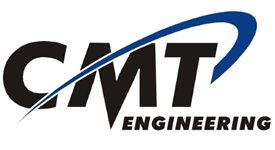CMT Engineering Ltd. has a long history stretching back over 100 years on its site in Cradley Heath.
It is an independent company owned by Anjali Agrawal with two divisions. Anjali is a chartered accountant; she has experience of working in various locations worldwide, giving her the opportunity to build a network of international relationships.

2017
CMT Engineering bought by Anjali Agrawal from Liberty House and incorporated as an independent company.

2015
Caparo’s UK businesses go into administration; bought by Liberty House Group.

2004
Nupac Clamps moves from Tewkesbury to become part of CMT Engineering; further development of product range and investment in new injection moulding machinery.

1997
Major investment in semi-automatic rotary transfer machines for barrel nipple production.

1993
Spartan is bought by Caparo; company name changed to Nupac.

1990
Spartan Fixtures buys Spartan Plastics in Tewkesbury to produce G clamps.

1982
Unicone transferred to CMT Engineering in Cradley Heath.

1981
CMT Group bought by Caparo.

1977
Spartan Fixtures established in Martley, Worcestershire , by David Ecclestone to market his patented 40mm plastic Spartan G Clamp.

1976
Tube Fittings moves into new premises in Cradley heath, built on the site of the original Cradley Heath Manufacturing Company.

1968
Midland Iron Group acquired by Central Manufacturing and Trading – the reason we are still called CMT.

1960
Midland Iron and Hardware Company formed. Cradley Heath Manufacturing and Tube Fittings become part of Midland Iron Group; close association with the Unicone Company.

1930
Unicone Company formed in Glasgow by George Richard Inshaw. Patent application filed for Unicone system.

1924
Tube Fittings founded. Factory in Old Hill, specialising in forged threaded mild steel elbows and tees.

1907
Cradley Heath Manufacturing Company established, making wrought iron fittings for the gas, water and steam industries.

1811
Wrought iron pipe fittings first produced by John Russell, landlord of the Turks Head Inn in Wednesbury. Over the next century the Black Country becomes the centre of the world’s steel tube-making industry.

